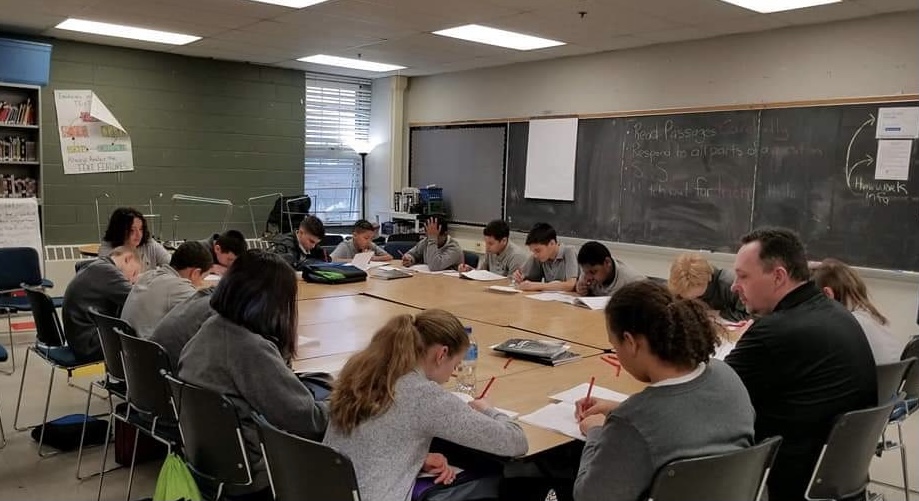Lawrence Washington, the administrator/principal for a K-12 school district, remembers the first time he walked into a classroom as an English teacher. “That was in 1995, and I had just graduated with my master’s in curriculum, instruction, and supervision. I was ready to make my students be on fire for learning. I walked into my room, and my students were playing a game of football with an eraser. That brought me down to Earth very quickly, and I had to use my classroom management skills to get control of everyone asap.”
Lawrence laughs now about the situation, and he says that his time in the classroom taught him a lot about what both students and teachers experience in the education system. “It was important to be a part of this because when I became the Dean of Students, I had a much better idea of how to support everyone. I kept building on everything I was learning and growing my skills, and I eventually progressed to being a principal/director.”
He states that by working as a teacher and as an administrator, he has been able to develop a diverse skill set. “I’ve been able to learn about every facet of a school, including teaching, diversity and inclusion, HR, curriculum writing, behavior management, and leadership. Hopefully I will be able to use that experience to become the superintendent of a school district in about five years.”
With his extensive experience, he is often approached by aspiring education professionals for advice. “I suggest that they stay in college and get something higher than a bachelor’s degree. It just isn’t enough anymore, honestly. With a higher degree, you will have more career options. Another very valuable skill is being bilingual. I also recommend that people who want to work in education learn classroom management and leadership.”
Lawrence says that anyone who works in schools, be it in a classroom or in administration, is an educator. “That includes me. Each day, I remind myself that I must help students grow academically, morally, and socially. I try to pay close attention to each student I meet and to understand their unique personality and learning style. Doing so means that I can enable each student to grow to become the life-long learner and active citizen needed in our society. In short, I do all that I can to ensure that all students learn and are successful. It’s a good feeling when I see that happen.”
How success is defined will depend on the student, of course. As Lawrence explains, “It’s tied to how much they grow personally. This growth is the spirit of our challenge in school. Without educational growth, there can be no learning.”
He says that teachers can help by remembering that appropriate learning takes place through many different experiences. “This means that activities must be designed to lead the student from practical issues to theoretical principles. Learning also occurs as students freely engage in making choices while weighing personal responsibilities and the possible consequences of their actions. It is our role as educators to present principles, values, and reasons to students and to encourage them to examine the choices and decide whether to accept them.”
He loves when teachers employ a diversity of teaching styles. “That is very effective in making learning accessible to all students, who learn differently, as educators know. When I teach, it is important that I find ways to utilize those differences in a democratic atmosphere that fosters cooperation rather than competition. Group work plays a large role, for it allows both a hands-on investigation of the content and an opportunity to build social skills. It also allows for individual strengths to be highlighted within the safety of the group. Students can also express their ideas in ways other than writing; posters, stories, three-dimensional art, and role-playing are some of the alternative activities available in my class.”
The ability of a teacher to be creative and understand how their students best learn will lead to wonderful growth, Lawrence says. “They will understand themselves better and express themselves in ways that are natural to them. They will even discover that education really can be fun.”
Lawrence believes that teachers are positioned to be important influencers in students’ lives. “They are who students spend a great deal of time with every day,” he states. “I admit that there are difficult days when it may seem like students will never see their own potential and live up to it. However, teachers are invaluable because they are there to gently remind students of who they can be. I see it every day in my school, and I could not be prouder of the teachers I work with.”
This is a Contributor Post. Opinions expressed here are opinions of the Contributor. Influencive does not endorse or review brands mentioned; does not and cannot investigate relationships with brands, products, and people mentioned and is up to the Contributor to disclose. Contributors, amongst other accounts and articles may be professional fee-based.

